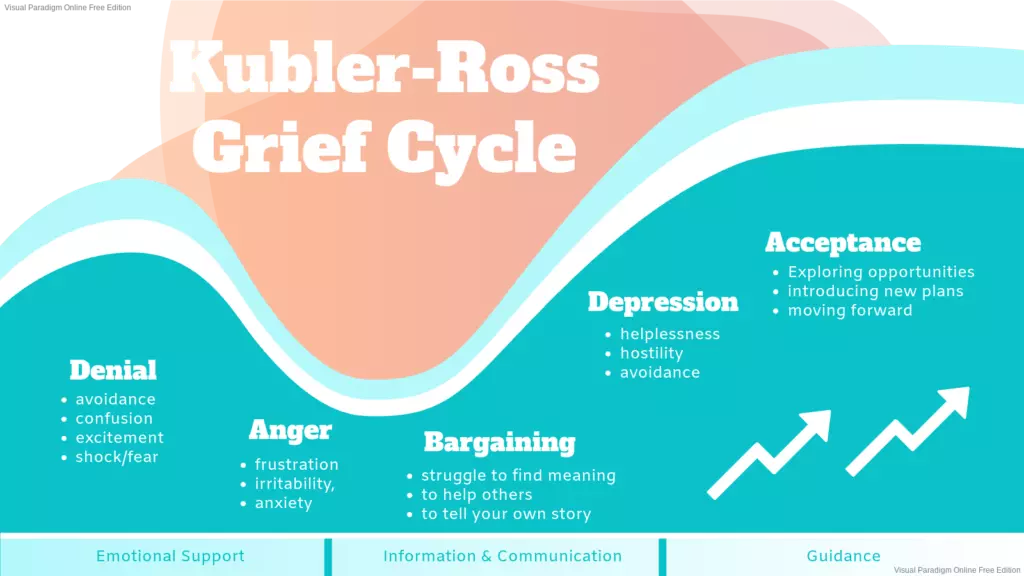Grieving The Loss of The Child You Thought You’d Have
Becoming a parent is the most rewarding job I’ve had. It is also the most difficult and challenging job I’ve had. When you find out you’ll be bringing a little human into this world, you start planning for their future. You imagine what they will be like, how you’ll protect and provide for them, and how you’ll parent them. You imagine what their first words will be, when they’ll take their first steps, their first graduation, and the joy and pain you’ll feel when they finally branch out on their own. What you don’t imagine is something terrible going wrong and how devastated you’ll be when you find out you’ll never have the child you thought you’d have. What you don’t imagine is that you’ll be grieving after that little human enters the world.
I often hear the phrase “life is a cycle”. Just hearing it you can picture the normal cycle of life from infancy to adulthood. You tend to picture that same cycle for your child. But what if your child will never get to experience that ‘normal’ cycle? What happens when you have to accept that your child will always be different and will never get to experience some of the things we thought they would like riding a bike, having friends, cooking a meal, graduating college, or living alone? What do you do when you realize your child will never be able to take care of themselves? You grieve.
Grief can be defined as an emotional response to the loss of something or someone. When you find that the child you waited for for nine months has a disability, you grieve the loss of the vision you had for their lives. Grief never looks the same for everyone and we will go through the cycle at a different pace. The Kübler-Ross Grief Cycle states that there are five stages of grief: Denial, Anger, Bargaining, Depression, and Acceptance.

- Denial
During the initial stages when we are still in shock of getting devastating news, we tend to find it hard to believe. As a coping mechanism, we try different ways to process this information and one way is to deny it happened. We use phrases like “this can’t be happening”, “what, no way”, “but he/she just fine”. This was what I was doing when I told my husband that “our son was fine, he’s just developing at a different pace”.
2. Anger
After getting over the initial shock, you then start to become angry. You try to find reasons as to why this is happening and alternatively why it shouldn’t be happening. You sometimes place the blame on yourself, the person it happened to, or others who have been in contact with the person. For me, I wondered if it was something I had eaten or didn’t eat, did I wait too long to take my prenatal vitamins, what didn’t I tell the doctor so he could fix it? I blamed myself for my son’s autism. I felt like it was something I had done.
3. Bargaining
At this stage, you start to bargain with a higher power to change, delay or reverse the situation you find yourself in. This was where my relationship with God changed. I grew up in a christian home and always thought I’d become a practicing christian when I was older and had lived a “fun” life. I decided to use my son’s imminent diagnosis as a bargaining tool with God: “If I start serving you, then you have to heal him
4. Depression
After you’ve waited to see if your bargaining strategy worked and you see that nothing has changed or gotten better, you then fall into depression. You feel helpless and struggle to find meaning and purpose in what you’re going through. You tell yourself “there’s no sense trying anything”, “he’ll never get better” and you give up in a sense. During this stage I kept wondering why this was happening to us. We were good people who did things for others…why us?
5. Acceptance
At this stage, you have left with no other choice but to accept your fate. This is how things will be. It is during the acceptance stage that you start to find ways to cope and help you live with the live altering changes of what has happened. This is when I started to look for ways to help my son live the best life he could. I later enrolled in school and am now a behaviour therapist; working with other children on the spectrum.
It’s important that you know everyone goes through grief in their own way. Some may get to the acceptance stage much quicker than others and others may never get there at all. I know parents who hide their child’s diagnosis from family members and there are those who try the wackiest type of treatment in an effort to “cure” their child. Personally, I’ve gone through stages and even the entire process a thousand times (and counting). Some days when it’s particularly hard I am either angry or depressed. I am thankful though for my relationship with God, and on those days he gets me through.
Wherever you are in the process today; know that you are not alone even though it may feel like it. This was the main reason A Special Kind was developed; to help parents struggle to stay afloat. Share your story with us at share@aspecialkind.com so we can become a part of your cheering squad.









